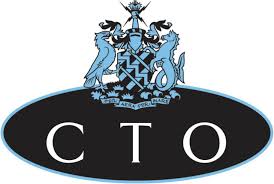The Commonwealth Telecommunications Organisation (CTO) on Wednesday in London called on International and regional Organisations to work towards the seamless delivery of joint efforts that will deepen the global digital economy.
CTO addressed well over twenty different international and regional organisations on how best to promote the penetration of knowledge economy which is fast overshadowing resources based economy worldwide.
In her remarks, the chairperson of CTO, Mr Sharvada Sharma said “that this forum is an opportunity to discuss the practical next key steps that international organisations should take to build the global digital economy. Such policy matters being discussed relate to how information and communications technology (ICT) infrastructure and new technologies can be better used to achieve key economic and social objectives”.
Also speaking, Malcolm Johnson, the Deputy Secretary-General of the International Telecommunication Union (ITU), averred that “international collaboration, co-operation and coordination is essential for the development the digital economy across the world. And this includes the need for the implementation of international standards, especially those related to cybersecurity.”
Mats Granryd is the GSMA Director-General and is a member of the UN Broadband Commission. He noted that “International multi-lateral organisations must continue to work more closely to help combat the digital divide that exists in the world today. This digital divide exists in all countries in the world but sadly it exists to a greater extent in some countries than in others. Governments must learn from one another in terms of the initiatives that need to be taken so that this digital divide can be comprehensively tackled.”
In her contribution at the London Forum to drive digital economy penetration, Ms Manon van Tienhoven, Senior Advisor to the Global Forum on Cyber Expertise (GFCE) argued that “with their extensive knowledge and experience on either regional developments and/or on specific cyber topics, both regional and international organizations are crucial for the success of the GFCE and global cyber capacity building.”
Bernardo Calzadilla Sarmiento is the director of ICT at the United Nations Industrial Development Organisation (UNIDO). He said “advances in technology such as Industry 4.0 will modernise the manufacturing sector and vertical sectors such as in the energy, transport, financial services, smart cities and media sectors. Industry 4.0 is going to bring about far reaching changes for the future of the global manufacturing sector. Governments must implement best practice initiatives to address these important changes.”
Moctar Yedaly, Director of ICT at the African Union said “this forum is analysing how new technologies can deliver stronger broadband capabilities in rural areas. New technologies will support job creation in rural communities. Agricultural production will be boosted in a more environmentally friendly manner.”
“The ideas and policy advices that are generated here today and that relate to improving broadband connectivity and access to high speed internet services can assist governments and regional organisations alike in rolling-out their digital economy plans”, said Dr Rowena Cristina L Guevara, Chairperson of the ASEAN Committee on Science, Technology and Innovation (COSTI).
Edward Zhou is Vice-President of Global Public Affairs at Huawei Technologies. He said “the private, public and government sectors must work together in identifying key policy to market initiatives that can ensure higher economic performance and can tackle key social problems through the use of ICT innovation.”
Business Hilights recalls that the CTO remains the oldest and largest Commonwealth intergovernmental organisation in the field of information and communication technologies. With a diverse membership spanning developed and least developed countries, small island developing states, and more recently also the private sector and civil society, the CTO aims to become a trusted partner for sustainable development for all through ICTs.








